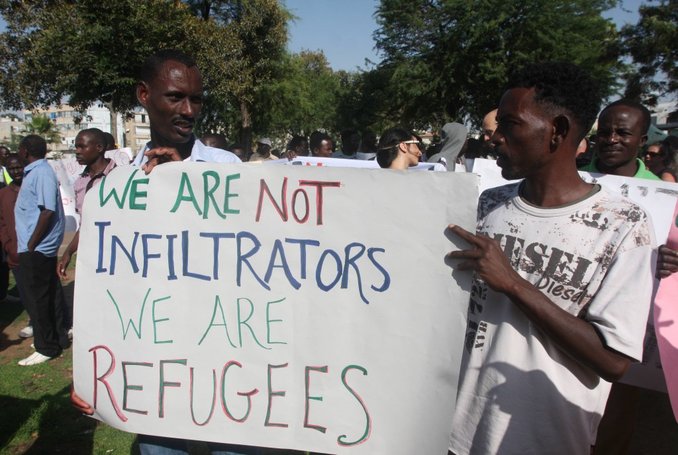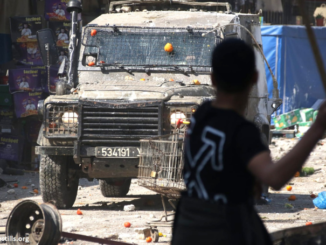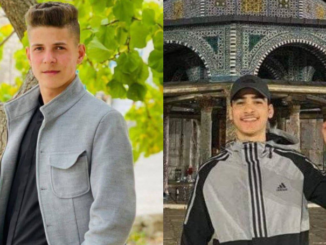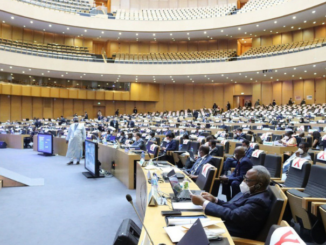
Israeli authorities should abandon a new policy that could lead to the indefinite detention of thousands of Eritrean and Sudanese nationals for refusing to leave Israel for Rwanda or Uganda, Human Rights Watch said today.
The policy is the latest in a series of coercive measures against these groups aimed at thwarting their legitimate right to seek protection and would almost certainly result in mass unlawful asylum seeker detention, Human Rights Watch added.
Using an African woman’s image to promote Israel is particularly crass given that refugees and asylum-seekers from African states are currently facing mass expulsion or jail if they resist https://t.co/ameIl8bzWH
— Electronic Intifada (@intifada) January 22, 2018
Eritreans and Sudanese in Israel have been unable to obtain protection because, according to the United Nations refugee agency, Israel’s unfair asylum system has either prevented or discouraged them from lodging asylum claims or has unfairly dismissed their claims.
Israeli authorities categorize them, along with all irregular border-crossers, as “infiltrators” and have recognized fewer than 1 percent of asylum applicants as refugees, compared with acceptance rates in the European Union of 90 percent for Eritreans and 60 percent for Sudanese.
Israel is all set to deport 40,000 African refugees—who they refer to as “infiltrators”—unless they opt for an indefinite prison sentence in Israel.
92% of them fled Eritrea and Sudan—violent, poverty-struck countries.https://t.co/MJJymqLTMd
— Zach Carter (@ZachJCarter) January 21, 2018
“In the latest chapter of its longstanding quest to dodge its refugee protection duties, Israel is threatening to lock up thousands of asylum seekers who refuse to leave,” said Gerry Simpson, associate refugee director at Human Rights Watch.
“Instead of jailing them, Israel should fairly identify and protect refugees among them.”
.@hrw has called on Israeli authorities to abandon a new policy that could lead to the indefinite detention of thousands of #Eritrean and #Sudanese nationals for refusing to leave Israel for #Rwanda or #Uganda, #humanrights #migration #refugees #africa https://t.co/qyRQtLxLWo pic.twitter.com/xhWl3BA9RS
— GIJN Africa (@gijnAfrica) January 22, 2018
On January 1, 2018, Israel’s Population, Immigration and Borders Authority (PIBA), under the Interior Ministry, announced plans to indefinitely detain thousands of Eritrean and Sudanese men if they refuse to leave for Rwanda or Uganda by March 31.
Although the first phase applies only to some men, later phases could extend the policy to others and to women and children.
Only 3 so far, let’s see if any others join them: Israeli pilots say they will refuse to carry out Netanyahu’s plan to ramp up Israel’s ethnic cleansing of tens of thousands of non-Jewish African refugees & to force them back to the tortures they fled from https://t.co/XeaHQgsWhz
— David Sheen (@davidsheen) January 22, 2018
There were 27,018 Eritreans and 7,731 Sudanese in Israel as of March 2, 2017, according to the PIBA. Since 2013, about 14,000 have left Israel, including as a result of government measures against asylum seekers involving prolonged or indefinite detention, which Israel’s High Court has twice ruled unlawful.
The detention policy is based on the 1952 Law of Entry into Israel, which says prospective deportees can be detained beyond two months if their lack of cooperation has prevented or delayed their deportation.
Critics say that Israel’s acceptance rate of asylum seekers from these nations is considerably lower than that of most developed countries; according to the UN High Commission for @hrw, Israel has recognized only 8 #Eritrean & 2 #Sudanese asylum seekers as refugees since 2009 pic.twitter.com/Cb6c9uE3V6
— Save Eritreans (@saveEritrean) November 27, 2017
However, to date, Rwanda and Uganda have only accepted people who voluntarily agreed to leave Israel, and neither country has confirmed any agreement to accept anyone deported from Israel, meaning anyone removed from Israel against their will.
As a result, the Israeli High Court said in August that Israel could not deport Eritreans and Sudanese to Rwanda and Uganda and could therefore not justify detaining them for refusing to cooperate with efforts to deport them there.
Indefinite imprisonment or a one-way ticket.
These were the options PM Netanyahu offered to African refugees and migrants in Israel. https://t.co/TGXVgSSG1s
— Al Jazeera English (@AJEnglish) January 22, 2018
UNHCR says that Israel has not processed Eritrean and Sudanese asylum applications fairly, which is starkly reflected in the fact that Israel has granted only 10 Eritreans and 1 Sudanese refugee status since 2009.
Israeli asylum lawyers have told Human Rights Watch that about 700 Sudanese from Darfur have obtained humanitarian status, a status granted on a purely discretionary basis outside the asylum system.
The Israeli authorities should urgently carry out a full review, with UNHCR support, of how Eritrean and Sudanese asylum seekers have been blocked from seeking asylum and how current procedures prevent a fair assessment of their claims, Human Rights Watch said.
Those who have not previously filed asylum claims or who were previously denied a fair hearing should be allowed to file claims or have their claims reviewed afresh.
“Now that the UN refugee agency has confirmed that Israel’s asylum procedures for Eritreans and Sudanese are deeply flawed, the Israeli authorities should drop their charade and urgently and fairly re-review all their claims,” Simpson said.
(HRW, PC, Social Media)







